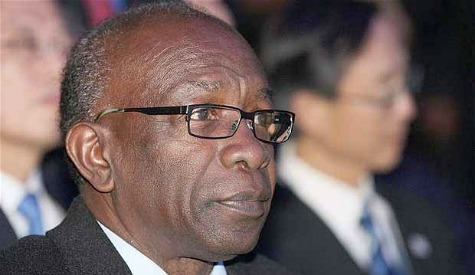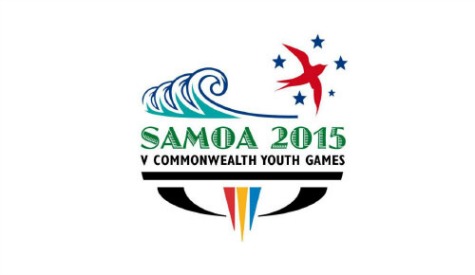 First Citizens ‘Sportsman of the Year’, George Bovell will resume his build-up to next month’s Pan American Games in Canada and the FINA World Aquatic Championship in Kazan a month later, when he competes at the Tropheo Citta in Rome Italy, over the next two days.
First Citizens ‘Sportsman of the Year’, George Bovell will resume his build-up to next month’s Pan American Games in Canada and the FINA World Aquatic Championship in Kazan a month later, when he competes at the Tropheo Citta in Rome Italy, over the next two days.
The three-time reigning Central American and Caribbean (CAC) Games 50 metres freestyle champion and multiple Pan American Games medallists, Bovell will compete in both the men’s 50m freestyle and 100m freestyle events.
Speaking ahead of the meet, Bovell said his main aim in the 50m freestyle, his pet, event will be to lower his time down to 22.2, an improvement on his 22.46 clocking at the Belgian Open Swimming Championship last month which was only good enough for fifth spot.
After skipping the 100m freestyle in Belgian, the Italian-based T&T Olympic bronze medal winner says he will return to swimming the event as he wants to work on his easy speed and stamina for the last few metres of the 50m event.
Last month at the Belgian Open Swimming Championship, Bovell picked up two silver medals at the Olympic Swimming Pool, Wezenberg, Antwerp.
The 31-year-old Bovell got his first silver of the meet when he set a national record in the 50m breaststroke in 27.65 to trail Greek swimmer Loannis Karpouzlis (27.61) with Belgium’s Jonas Coreelman took third in 28.75.
The top T&T swimmer returned to the pool a day later and picked up silver in the 50m backstroke in 25.70 seconds behind his AND clubmate, Francois Heersbrandt who won in 25.50 seconds while Greec’ Michail Kondizas took bronze in 25.81.
Following the meet he is expected to head to Y40 pool Padova where he has been invited for his first free diving meeting.
At that event, Bovell says he intends to swim down to 40m and back up while holding his breath, and with no fins.
He added, “This will be something that will no doubt help me push the limits of my swimming racing as well”.
He will also compete at the Sette Colli also in Rome (June 12-14) followed by Trofeo Rossini (June 19-21), Treviso Swim Cup (June 26-27) and French Open Championship in Vichy (July 4-5).

 In order for football in T&T to become a major revenue earner and as a consequence ensure the TTFA achieved self-sufficiency, he said, business professionals needed to be enlisted by the football body.
In order for football in T&T to become a major revenue earner and as a consequence ensure the TTFA achieved self-sufficiency, he said, business professionals needed to be enlisted by the football body. Officials of leading sporting organisation in T&T firmly believe yesterday’s arrest of top FIFA officials on allegation of fraud, racketeering and money laundering by the United States department of Justice has thrown the spotlight on the need for good governance codes and practices in the world of sport.
Officials of leading sporting organisation in T&T firmly believe yesterday’s arrest of top FIFA officials on allegation of fraud, racketeering and money laundering by the United States department of Justice has thrown the spotlight on the need for good governance codes and practices in the world of sport. The case against Jack Warner
The case against Jack Warner In just 100 days, up to 1000 young Commonwealth athletes aged 14-18, including four (4) from Team Trinidad and Tobago will compete for 107 Gold Medals in 9 sports over 5 days at the Vth Commonwealth Youth Games, to be held on the Pacific island nation of Samoa from 5-11 September 2015.
In just 100 days, up to 1000 young Commonwealth athletes aged 14-18, including four (4) from Team Trinidad and Tobago will compete for 107 Gold Medals in 9 sports over 5 days at the Vth Commonwealth Youth Games, to be held on the Pacific island nation of Samoa from 5-11 September 2015. Legendary West Indies batting icon Brian Lara has described the axing of Shivnarine Chanderpaul as shameful and has called on the West Indies Cricket Board to give the left-handed Guyanese an honourary send-off by selecting him for the two-Test series against Australia.
Legendary West Indies batting icon Brian Lara has described the axing of Shivnarine Chanderpaul as shameful and has called on the West Indies Cricket Board to give the left-handed Guyanese an honourary send-off by selecting him for the two-Test series against Australia.